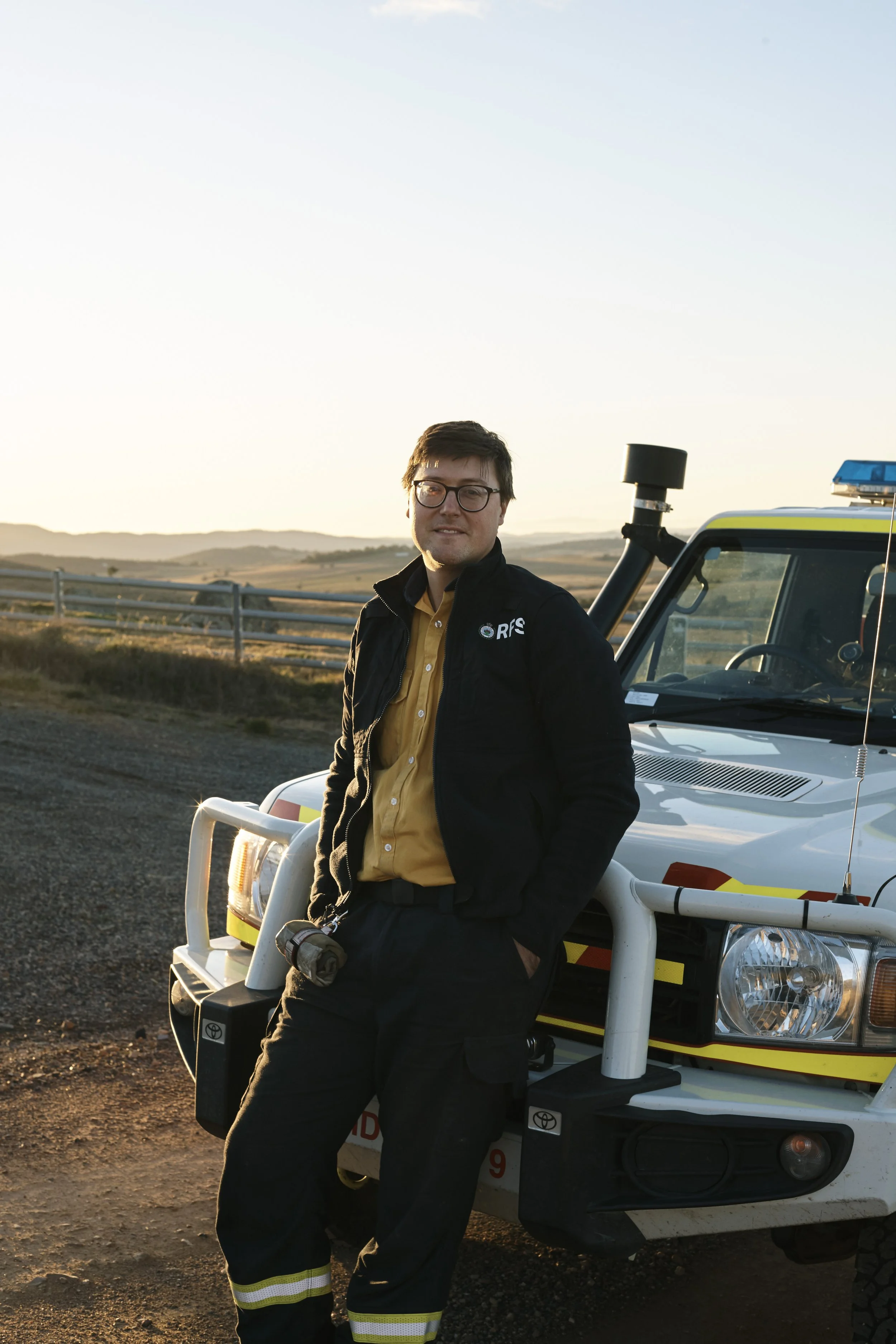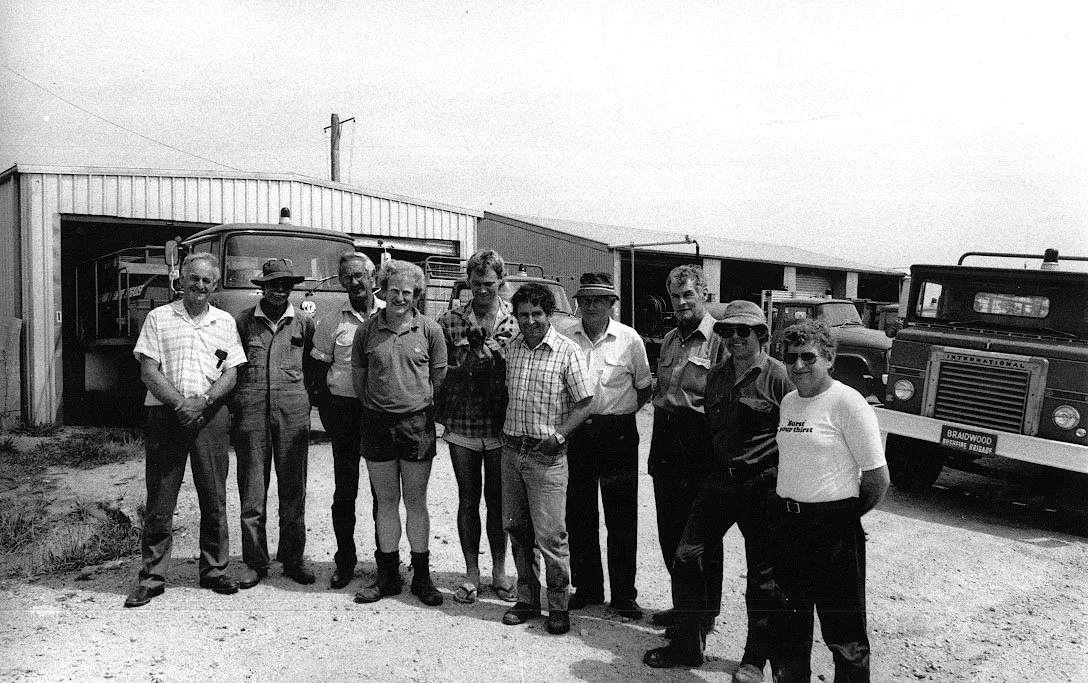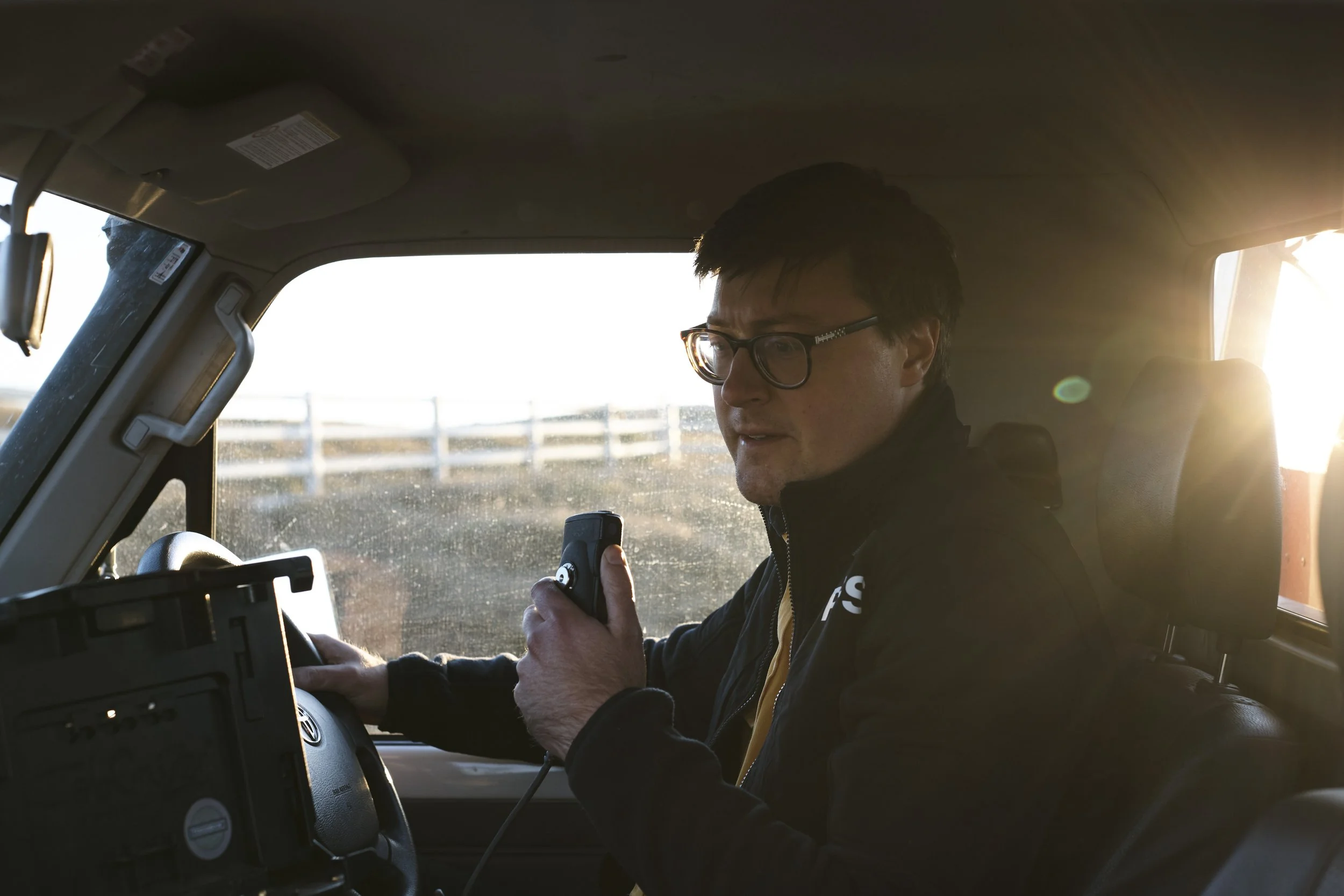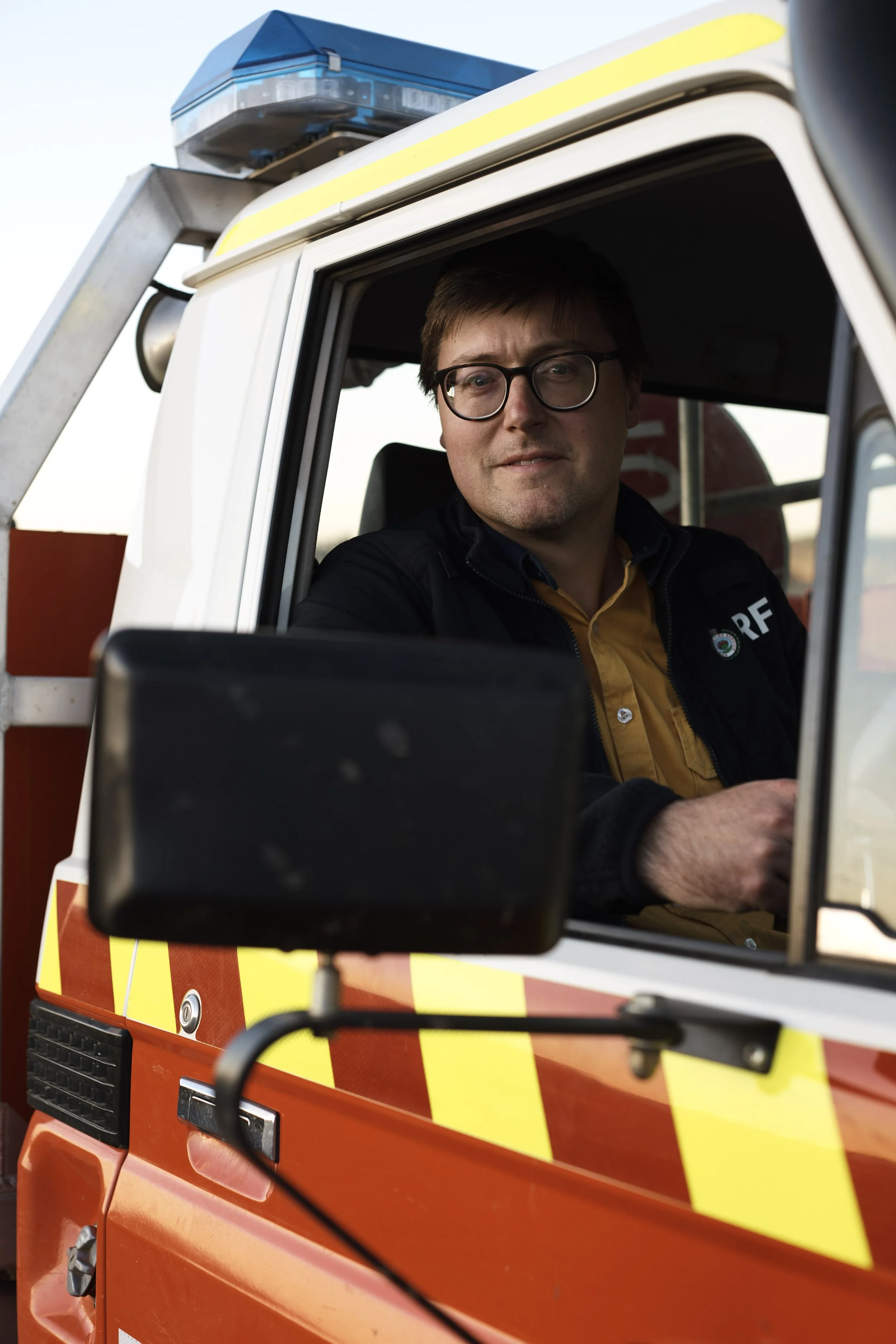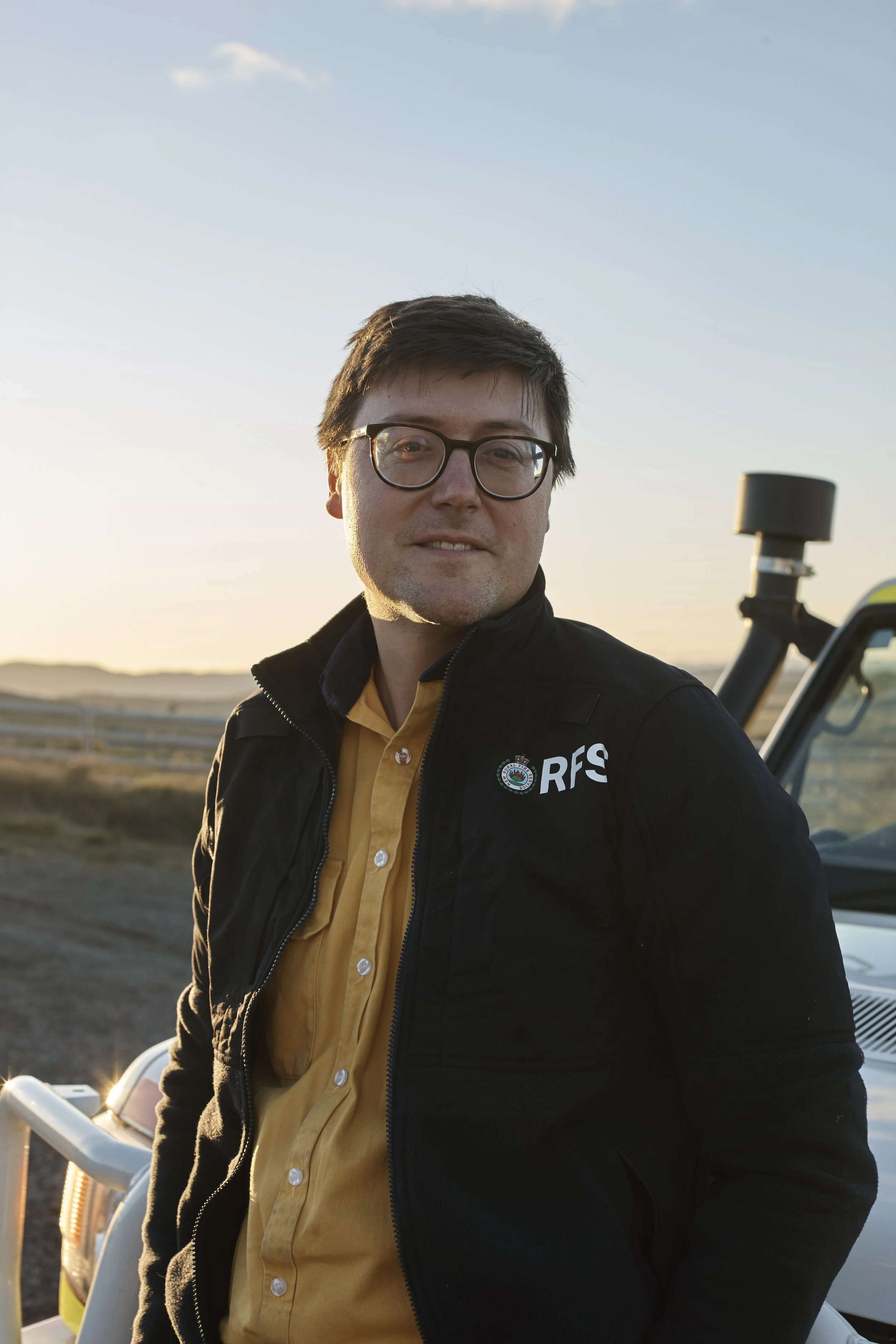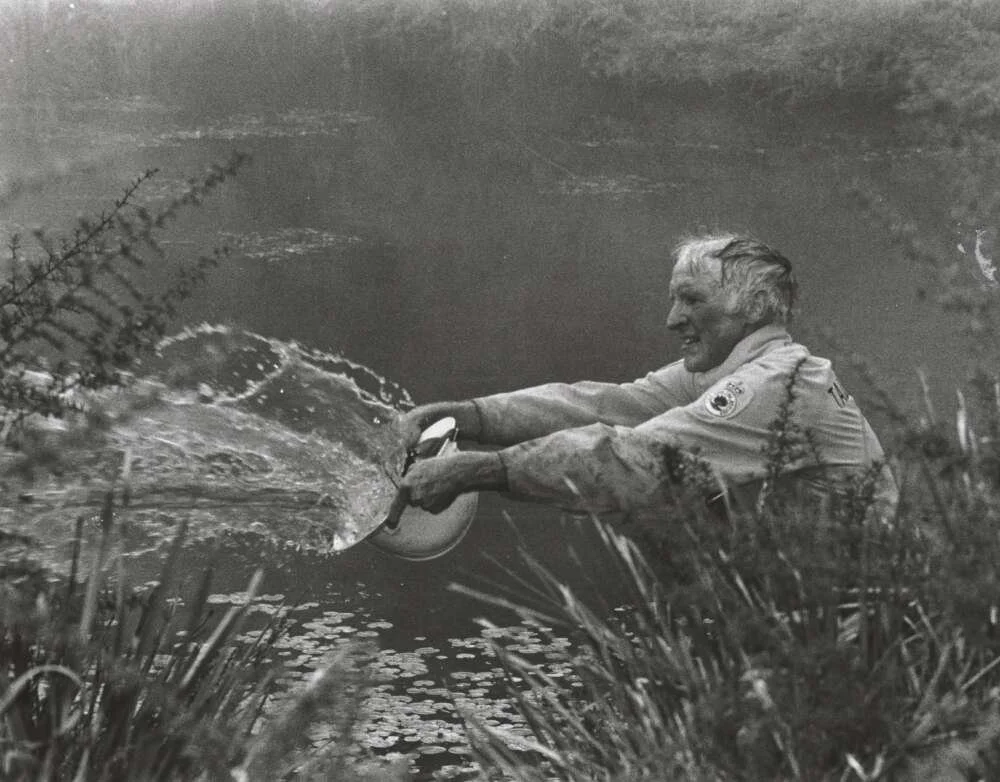Braidwood R.F.S.
Though Russell Buzby grew up in Sydney, the RFS was always a part of the fabric of his childhood. He remembers holidays spent with his grandparents in the Blue Mountains, waiting impatiently for Santa to appear.
‘They would bring Santa round to the carols at the park,’ he says, ‘and throw lollies off the back of the truck. It was just one of those things that was always around.’
He also remembers being bundled into the car during the ’93–’94 fires, his parents racing to get the family back to Sydney before the highways closed, while the RFS stepped in to try to contain the blazes. The fact that these firefighter were volunteers was something that he came to understand the significance of later, when signing up with the Braidwood RFS.
‘I didn’t have any kind of background with firefighting, but it was something thing that I'd seen as a child, and that I knew was important and intrinsic to regional communities,’ he says.
‘And then rocking up, just really realising that it’s a group of people who don’t do this for a living, that these people have lives and families and real jobs that they go off to – but that you drop your ‘real’ life and this takes precedence, because that’s what people need.’
To meet that need, volunteers sign up for rounds of training, first becoming qualified as Bush Firefighters – ‘It’s like getting your L-plates’, says Russell – then as Advanced Firefighters. More extensive training focusses on crew safety, navigation, hydraulics, and leadership.
Braidwood Bushfire Brigade, 1988
Alongside active firefighting, the RFS provides a range of initiatives, such as providing help to landholders clearing out potentially combustible growth.
The RFS also equips young people with fire safety and associated skills through the Junior Membership program, as well as the Braidwood Cadets, which has the distinction of being the longest-running Cadets program in NSW.
As well as working to safeguard paramedics at emergency scenes, and running community initiatives like the AIDER program, members of the RFS also take time to contribute in less official ways. Members have worked with the Braidwood Life Centre to help locals maintain their chainsaw licenses over winter, with the wood in question donated to those who may otherwise go without.
‘We don't do that in red trucks, though,’ says Russell, grinning… ‘That’s more of “a group of spontaneous people who happen to know each other, arriving on the side of the road at the same time, with a bunch of chainsaws.”’
Though the memory of the Black Summer bushfires still hangs heavy over the region, Russell’s ’s focus is largely on the future, and preparing a new generation to meet coming challenges.
But with two children at home, and an eye on the Cadets program, it’s not hard for him to go back to those earliest encounters.
‘It’s one of those things, you know,’ he says. ‘You're a kid growing up and you think, “Man, wouldn't it be cool to like be on a big red truck and like, you know, press the wee-wah button and have the siren and the lights going…?!” And the RFS just lets you do that.’
How has the RFS come through these past five years? I imagine that after a period of recovery, you’ve started to focus on what came out of the Black Summer, and potentially shift gears a bit.
For sure. One really big thing is that, as RFS doctrine has been updated, there is a wide acceptance across the service of the role of mozzie squads.
They’re officially called Farm Fire Units, and they’re an accepted part of the firefighting landscape in New South Wales, which is a really positive outcome. And, you know, the Mongarlowe mozzie squads were really held up as significant example, especially with the documentary around them.
Those squads come from a sort of spontaneous volunteerism that is probably part of the Australian psyche. You can't stop it from happening. You don't want to stop it from happening. It’s about checking in and making sure that everyone is able to coordinate as best they can.
There has also been a new focus on cultural burning, which I know that the Braidwood RFS and others in the region have really engaged with. Has that affected the way you’ve approached the landscape?
If you go to these cultural burning workshops, you learn that taking fire to the country is an important part of keeping the country healthy and where it needs to be, in terms of the vegetation and the makeup of the ecosystem.
So yeah – you drive around the district on a good sunny August afternoon, 20 degrees, and sort of wish you'd see more little columns of smoke rising up, people clearing out the dead timber, clearing out the vegetation. That said, I think around Braidwood, people are willing to burn when they need to burn; the people who know that they can will do it.
We participate in hazard reduction burns, but we can only do so when invited by a landholder, which we really encourage. It's just part of land management for someone with paddocks, and we're more than happy to go out and help assist the landholder with those sorts of things. Instead of one bad fire, you have lots of little good fires. It’s what cultural burning is teaching us has worked for 80,000 years.
Are there other changes would you like to see take place in the RFS in the future?
One big thing we’re working towards is being able to support and supplement Fire and Rescue in town. We’d like to push ourselves to that level – to become a Village 2 brigade, where we would then have crews that would qualify to put on the breathing apparatus gear and run into burning buildings.
It’s a question of membership. We’re really trying to push our membership to get to that level, so that we have enough people who can attain that breathing apparatus and structural firefighting qualification. It would mean that we could have crews going in and crews getting ready to relieve them once they come out, once their air tanks been exhausted.
There are only about a dozen in the RFS at the moment, and not all of us will be able to make it to any given emergency. The Cadets program has been a good pipeline for recruitment, but you always need more people. We've been putting recruitment posters up in every shop up and down the street; they’ve got a QR code on them and everything.
I remember going up for the interview, and thinking, ‘It's going to be like one of those public service interviews: tell me about a time when, you know, you put a fire out or something,’ right? [Laughs] And it's not that. It's really just trying to suss out how you are as a person. And then two months later the paperwork’s through, and you’re doing it for real.
Learn more at www.facebook.com/BraidwoodRFS
(02) 4842 1299
Saleyards Ln, Braidwood NSW
Words: Jessica Friedmann
Photos: Christopher Morris
John McGrath, deputy fire captain at a burn-off on the banks of the Mongarlowe River, New South Wales, September 1997 / Terry Milligan.

